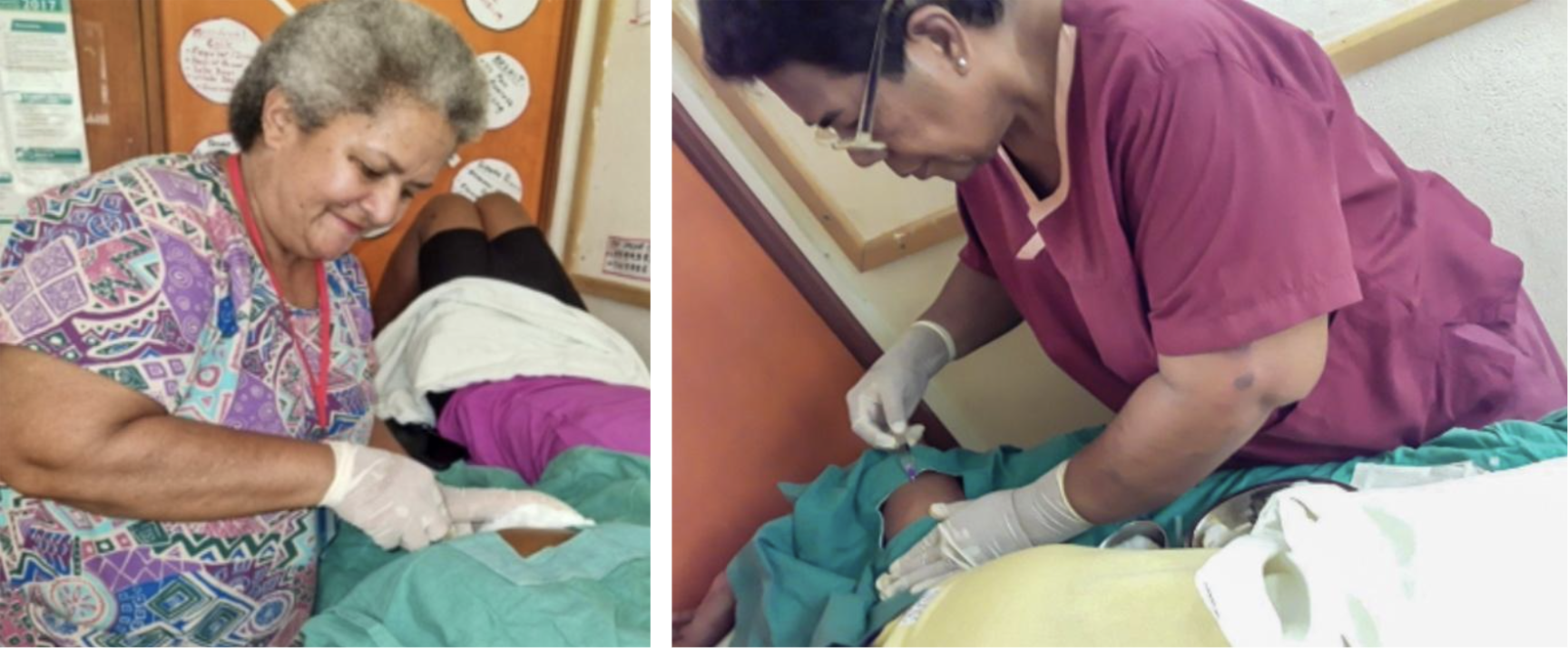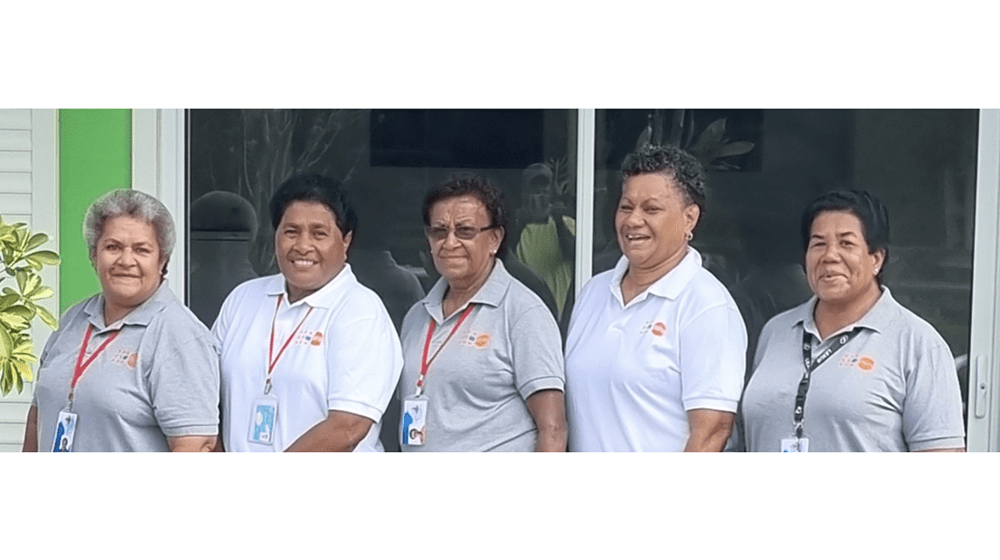PORT VILA, Vanuatu - The two large-scale Tropical Cyclones Judy and Kevin that hit Vanuatu one after another at the beginning of March 2023 have caused widespread damage across the South Pacific small island country, disrupting infrastructure and basic services including for sexual and reproductive health. The United Nations Population Fund (UNFPA) Pacific estimates that there are currently more than 5,600 pregnant women across Vanuatu, and just in the next 30 days, more than 620 live births will require obstetric and newborn health services. Upon request of Vanuatu’s Ministry of Health, UNFPA Pacific has recruited and deployed five international midwives to Vanuatu. These midwives are saving lives on the ground, as the world is commemorating the International Day of the Midwife on 5 May.
UNFPA’s deployment of these ‘surge’ midwives augments the work of local maternal and reproductive health care providers in Vanuatu, in support of the ongoing emergency response and recovery efforts by the Ministry of Health (MOH). Five Fijian retired midwives who arrived in Vanuatu on 23 March, were first deployed to the country’s main referral hospital, Vila Central Hospital in the capital, and provided antenatal care, labour and delivery, postnatal care, family planning, and gender-based violence (GBV) services. They were then deployed also to the worst-hit and hardest-to-reach areas of Epi and Shepherd islands in Shefa Province as part of MOH’s Emergency Medical Outreach teams.
In just five weeks after arrival, these midwives reached close to 1,500 individuals with maternal, SRH, and GBV services. They conducted awareness, counselling, and information sessions to the cyclone-affected women, young people and other community members, promoting safe motherhood, and protection from GBV. The midwives also delivered long-acting reversible family planning options, such as Jadelle implants that prevent unintended pregnancy for up to five years.

At the Vila Central Hospital, one of the UNFPA-deployed midwives, Kinsena Bolalevu was helping a 30-year-old woman from the cyclone-hit island of Efate, a mother of two and the sole breadwinner for her family, by inserting a Jadelle implant. Kinsena’s colleague, Midwife Emele Naiceru was assisting a 29-year-old mother of five, who travelled all the way to the Hospital from an outer island of Tanna to receive a repeat dose of the contraceptive that she had been using which is effective for three months. Emele inserted a Jadelle implant for her. “I did not know there are other longer-acting family planning methods. With this [Jadelle], I can now reduce my travel expenses to the hospital, and use the saved money to give more support to my children,” the mother said to Midwife Emele, full of smiles in joy. In addition to giving the implant, Emele also counselled the mother on pap smears and self-breast examinations. With more knowledge about family planning and about their own body and health, women in Vanuatu can make better choices for themselves and their families.
This is not the first time that UNFPA Pacific assists with the surge deployment of midwives during emergencies in the Pacific, as it was carried out also in response to the measles outbreak in Samoa in 2019, as well as to Tropical Cyclones Yasa and Ana in Fiji in 2021-2022. This initiative underscores the significance of the roles that skilled reproductive, maternal and newborn health professionals play in providing life-saving care and building resilience of climate crisis-affected communities to build back better, addressing the so-called humanitarian-development nexus.
Every two minutes, a woman dies due to pregnancy or childbirth somewhere in the world. Globally, there is a shortage of 900,000 midwives. Across the 14 Pacific Island Countries and Territories that UNFPA Pacific serves, there are a total of some 15,000 health workers who are involved in the provision of reproductive, maternal, newborn, child, and adolescent health services, but only 10% are nurse-midwives. Addressing this deficit could prevent two-thirds of maternal and newborn deaths, and stillbirths. On the International Day of the Midwife, let us reappraise and celebrate the invaluable contributions of midwives like Kinsena and Emele, who save and transform lives, even in the most challenging circumstances. UNFPA is committed to advancing midwifery in over 125 countries, including in the Pacific, by strengthening quality education and mentoring, regulations and workforce policies, building strong national associations of midwives, and promoting more resources allocation and financing for midwifery.


